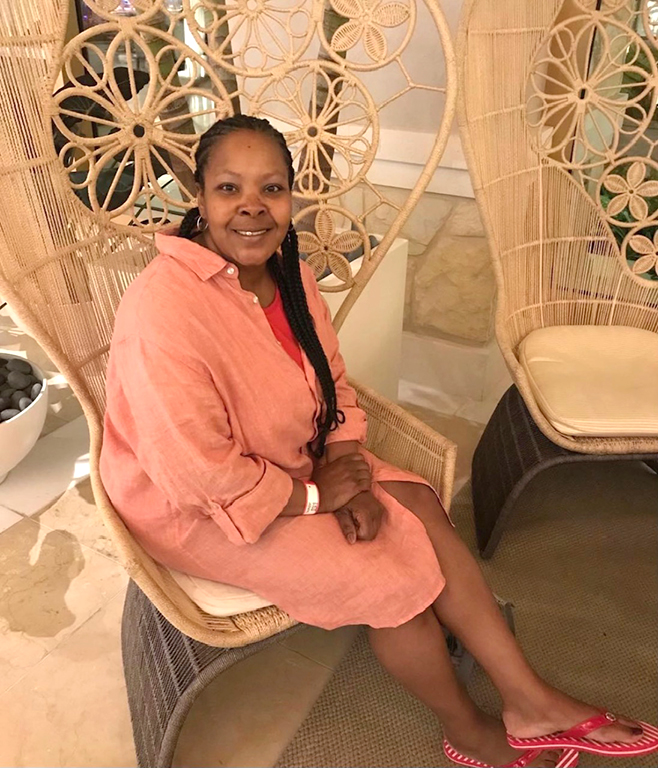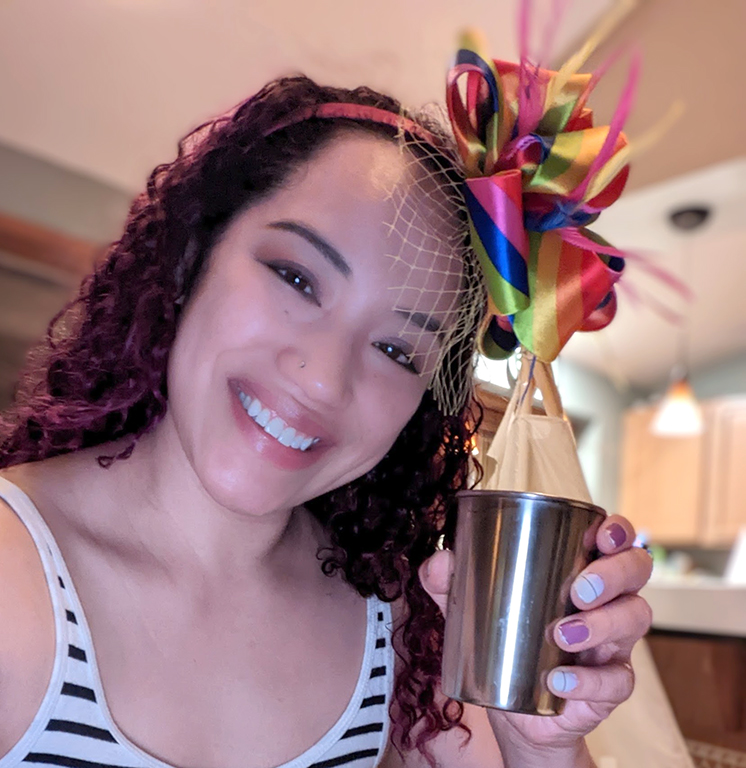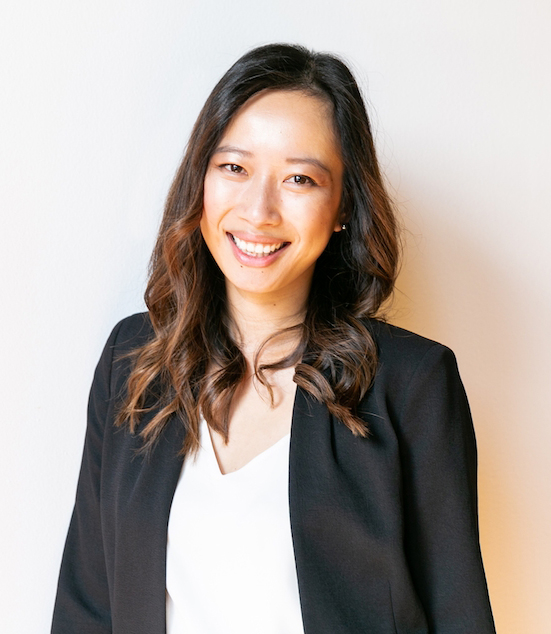By Kai Curry
NORTHWEST ASIAN WEEKLY
It has been said that our nation is having a mental health crisis. Awareness of the importance of good mental health is on the rise, but only for some. A stigma still exists, at home and at work, towards those experiencing mental health challenges.
Lisa Moore, of the National Alliance on Mental Illness (NAMI), South King County, told the Weekly that people hesitate to disclose to others that they are battling a mental health concern because they don’t know what kind of response they will get.
“We go to work and we hold it together. At the same time, this thing is going on in my head and I hope it doesn’t pop out…Then that creates this imposter feeling like they think I’ve got it all together and they have no idea I’m so exhausted when I walk out of there…What if I fall apart?”
According to NAMI’s latest national figures, one in five adults experienced some type of mental illness in 2021. Per year and per demographic, this equates to Non-Hispanic Asian 16.4%; Non-Hispanic Native Hawaiian or Other Pacific Islander: 18.1%; Non-Hispanic mixed/multiracial: 34.9%; and Lesbian, Gay, or Bisexual: 50.2%. And yet, people—especially people of color—feel they are alone. This is where peer support groups can come into play. Moore is the facilitator for an online BIPOC Support Group that is a collaboration between NAMI Seattle and NAMI South King County. The group is free and open to any person of color who wishes to attend.
“It’s very common in BIPOC communities for our previous generations to treat mental health with a lot of stigma and for it to be something that can be ostracizing. It’s shameful. It’s the sort of thing that you want to hide from everybody at all costs,” said Asia DeLeon Stanford, who has been attending NAMI’s BIPOC Support Group for about two months, but who has been seeking out mental health assistance for much longer.
“You want to present a put-together image and that can be common with people who are not the majority in the U.S.”
“A common quote from [NAMI’s] Principles of Support is, ‘We find strength in sharing experiences,’” said Moore. “Also to find a safe place to discuss challenges and successes of navigating the world, spaces, and everyday life as a person of color…Feeling safe, feeling supported to freely express their frustrations” in a secure place where—importantly—there are no white people. Moore and DeLeon Stanford clarified this is not therapy, but can be one tool in your mental health toolbox.
“I am an expert on only me,” said Moore, who nevertheless is an excellent source of information and encouragement. “There are many ways to wellness…some people exercise, for some people, it’s music or other arts, going to the gym…taking the medication that is prescribed.” Get enough sleep. Keep a diary. “Some people do all of them and more.”
NAMI’s BIPOC Support Group is “a place where I can show up and say whatever I want and people understand…I’m not going to get fired…there aren’t going to be any microaggressions,” Moore added. DeLeon Stanford corroborated, “What I find special about the BIPOC Support Group is that it’s culturally sensitive. There are similarities and experiences that…you don’t have to explain. There is a background knowledge that is inherently based…being a BIPOC individual…sometimes you don’t realize how much you need it until you have it.”
One of the reasons this type of support group is necessary is that people of color often cannot speak to friends, family, or coworkers about what is going on with them. Even if their workplace, for instance, is woke enough to offer a “mental health day,” calling that in is an entirely other thing—what will people say when you get back? Many people don’t want to attract attention.
“Relevant for Asian American communities [is] this idea of ‘saving face,’ which is why people don’t bring it up,” explained Dr. Sally Chung, a clinical psychologist practicing in Bellevue. Someone might be “worried there’s something wrong with their brain or their mind,” that they can’t fulfill family responsibilities, and thereby “dishonor them.” Many Asian families put up a façade of normalcy—and other Asians believe it. They see so-and-so “doing these traditions of family things, and all these holidays,” but they themselves are not on good terms with their families or feel “disconnected from both culture and family,” Chung explained. “Now there is a whole struggle with these things that I don’t know, or don’t know how to pass on. There is pressure, then, to make this appearance that ‘family life is good’”—and by extension, your individual life.
The child of Filipino immigrants, DeLeon Stanford has lived in Seattle with her husband and first child for several years. Even though she is more open than many about her mental health struggles, she remains very selective about who she shares with.
“I have indeed opened up to my parents and they have not yet accepted me in the way that I would like,” she said. “And I can’t show up to them in the way that I would like…but I don’t necessarily blame them for that because that’s not the education or paradigm that they received in their upbringing.”
This scenario is common, acknowledged Moore.
“Family members have ‘stuff’” that gets passed down to their children. That might be generational trauma from an immigrant or refugee experience, or a more individualized condition. Asian children, like DeLeon Stanford, do not feel they can be 100% themselves around their parents, who are sometimes very hard on their kids. Moore often hears descriptions of family life such as a father who “wanted me to perform, to get good grades, but that’s not me…and then when I couldn’t be ‘good’ anymore, he got mad at me.”
There are varied resources out there for those wanting to take a first step towards mental wellness.
“You have your one-on-one therapy with your therapist, you have a peer support group,” such as at NAMI, and “right in the middle is group therapy,” suggested Chung. “There are a lot of benefits to being in a group…First and foremost is this idea that you’re not alone in your struggle.”
“One day, we won’t have to create some space, right?” DeLeon Stanford said hopefully. “But until then, it’s really a safe space for us to speak freely, without judgment. And when total acceptance appears from within the group, that’s a beautiful thing.”
To sign up for NAMI’s BIPOC Support Group or other services they offer, go to namiseattle.org.
To see a list of Asian and Pacific Islander-specific mental health resources compiled by Chung, go to instagram.com/p/CsSF44iPAtT.
Kai can be reached at info@nwasianweekly.com.







—-A stigma still exists— ???
We continue to feed it.
Harold A Maio